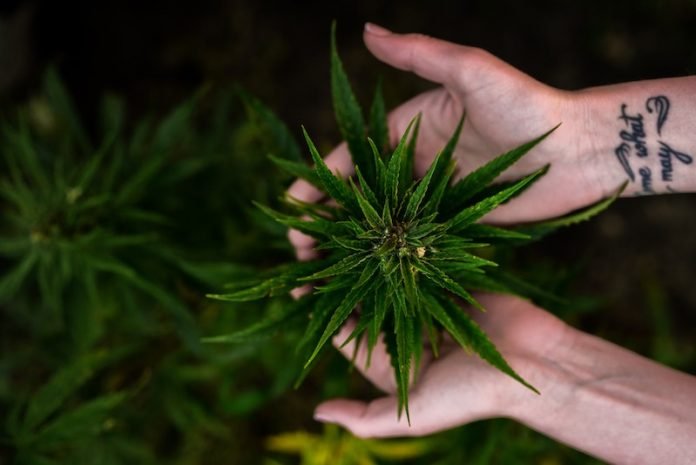
In a new study, researchers found that cannabis could provide immediate relief from depression symptoms.
The research was conducted by a team at The University of New Mexico.
Depression is the most common mental health disorder in the U.S., affecting roughly one in five adults and is at the core of numerous other health conditions including cancer, substance use disorders, anxiety disorders, schizophrenia, dementia, diabetes, cardiovascular disease, chronic pain, and other physical disabilities.
Conventional medications for treating depression, such as monoamine oxidase inhibitors (MOIs), tricyclics antidepressants, selective serotonin reuptake inhibitors (SSRIs), and selective norepinephrine reuptake inhibitors (SNRIs), typically require several weeks or even months to begin to alleviate symptoms of depression.
The potential side effects of conventional antidepressant medications include sedation, agitation, anxiety, anorgasmia, motivation, and suicidal ideation.
Until recently, there has been little research on the actual effects of common and commercially available cannabis products on mood and behavioral motivations more generally.
As a result of federal regulatory barriers to conducting clinical research on potential medicinal applications of the Cannabis plant in the United States, the existing research has been mostly limited to measurements of synthetic analog therapies or cannabis-derived formulates neither widely used nor generalizable to the extensive range of cannabis-based products used by millions of people every day.
In the study, the researchers examined the immediate effects of consuming natural Cannabis flowers or “buds” on symptoms of depression using data collected by the Releaf App.
They observed 1,819 people who completed 5,876 cannabis self-administration sessions in the app.
The team found that the vast majority of patients that use cannabis experience antidepressant effects, although the magnitude of the effect and extent of side effect experiences varied with the fundamental properties of the plant.
Using cannabis results in an average symptom improvement of nearly four points on a 0-10 scale just moments after consumption.
Furthermore, cannabis flower with relatively high levels of tetrahydrocannabinol or THC is particularly associated with immediate reductions in the intensity of depressive feelings.
Other, mostly animal studies show that, like conventional antidepressants, THC affects dopamine, serotonin, and norepinephrine generation.
In addition to the general finding of the effectiveness of cannabis flower with high THC levels, the researchers found that up to 20% of cannabis use was linked to some negative side effects that correspond to low moods, such as feeling unmotivated.
But users were three times as likely to experience positive side effects, including feeling happy, optimistic, peaceful, and relaxed.
The team says they need further research to have a complete understanding of the long-term relationship between cannabis use and depression.
But this study shows an obvious space for cannabis even within a conventional antidepressant medication regime, for short-term relief during the weeks of often very severe depressive symptoms before conventional antidepressants become effective.
One author of the study is Jacob Miguel Vigil in the UNM Department of Psychology Department.
The study is published in the Yale Journal of Biology and Medicine.
Copyright © 2020 Knowridge Science Report. All rights reserved.



